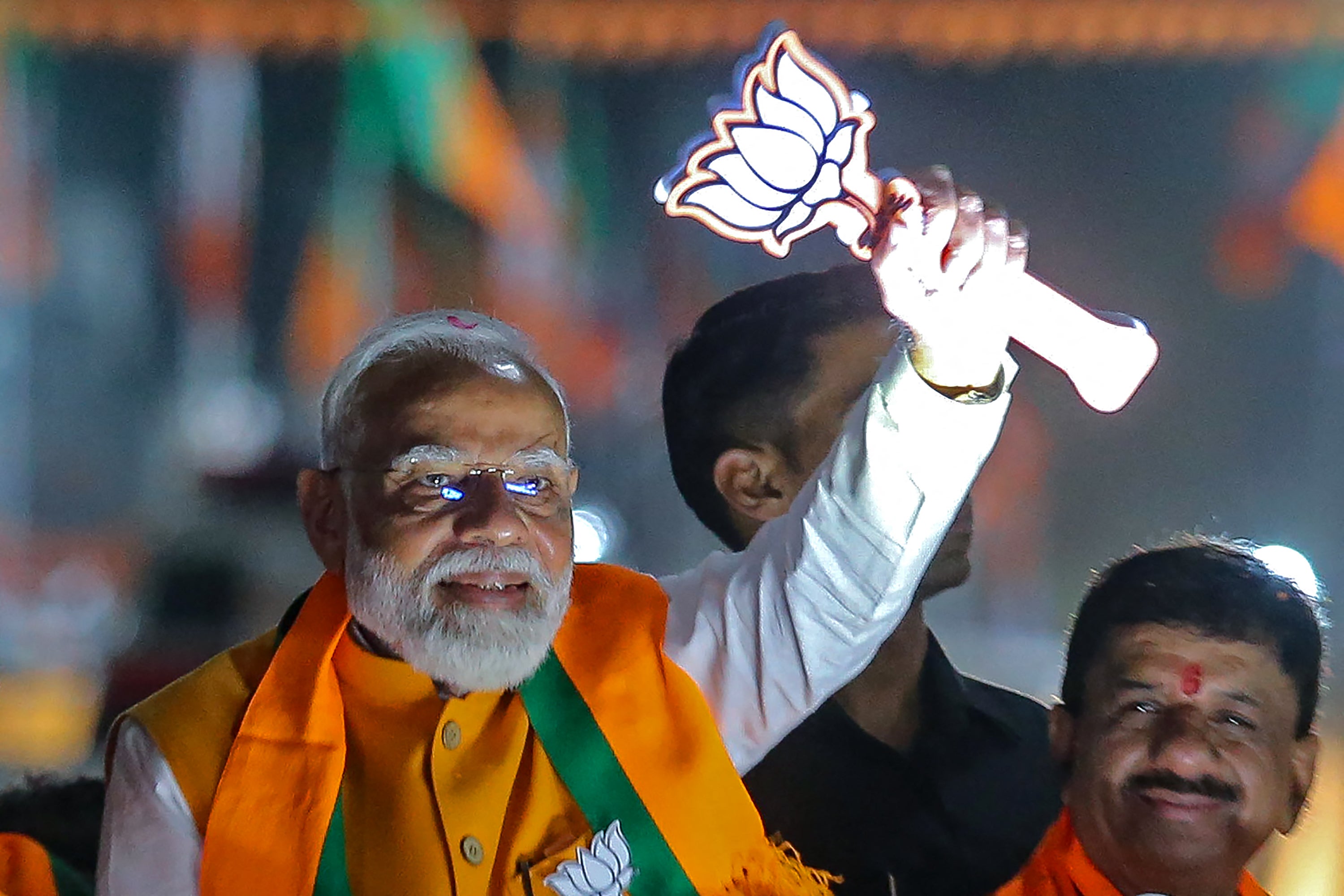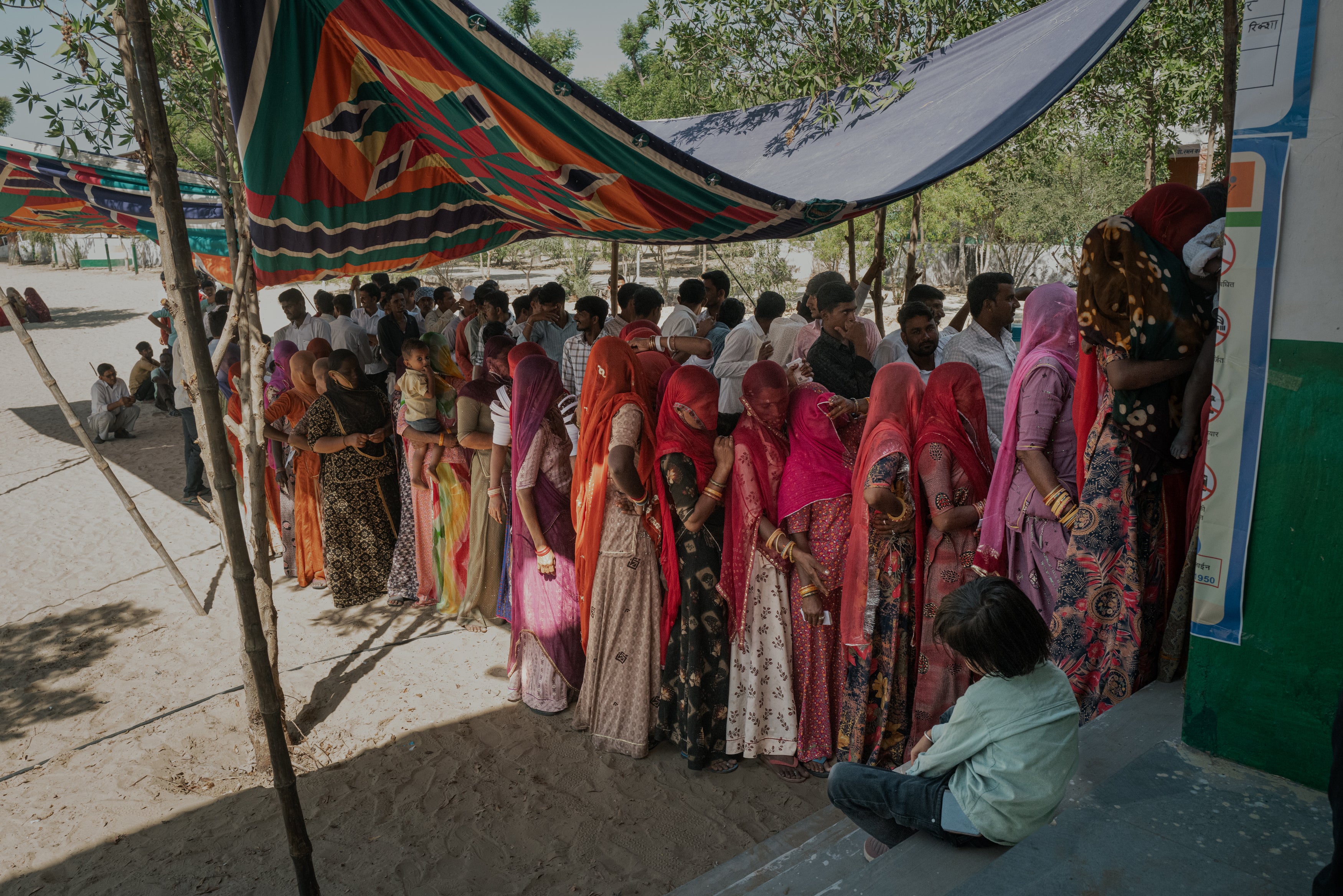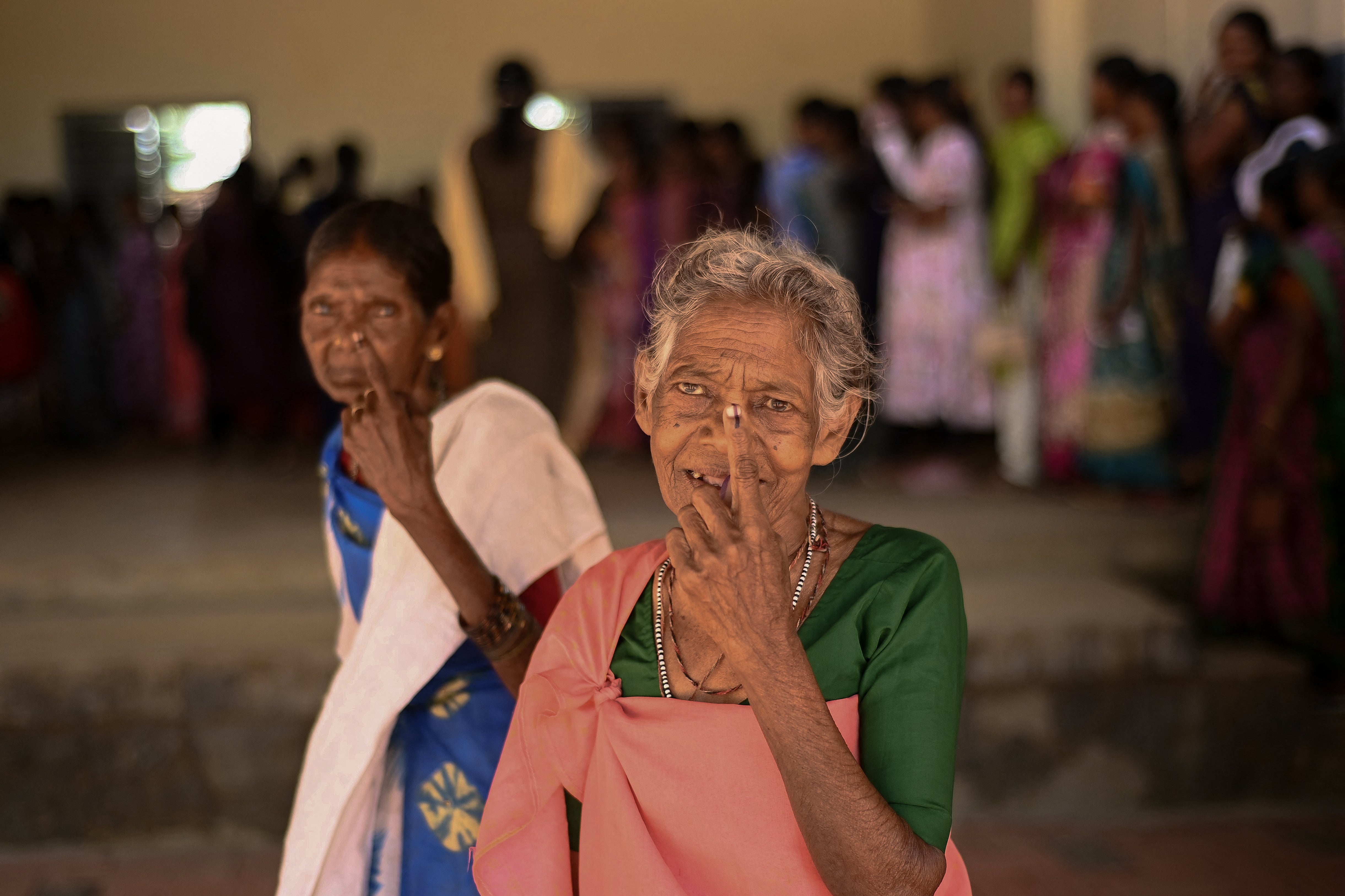Modi’s ‘hate speech’ against Muslims investigated by India’s election commission
Amnesty and other international rights groups say Modi’s comments ‘demonise the Muslim community’ and put them at risk of human rights violations. Alisha Rahaman Sarkar reports

The language used by India’s prime minister Narendra Modi – appearing to refer to the country’s Muslim population as “infiltrators” – has sparked outrage among the opposition, who have described it as hate speech and accused the prime minister of dragging India’s democracy into the gutter.
Now, the Election Commission of India has sent a notice to Mr Modi’s ruling Bharatiya Janata Party (BJP) confirming that it is investigating the speech, which was made during a campaign rally last weekend, for possibly constituting a breach of election rules.
That the notice of a possible violation of the electoral code has gone to Mr Modi’s party, and not to him personally, is unusual. Nonetheless, it represents the first time in India’s independent history that the commission has recognised a complaint against a sitting prime minister.
The constitutional body issued a similar notice to the opposition Congress party on Friday over alleged violations of the code by its chief, Mallikarjun Kharge, and former party president Rahul Gandhi. It followed complaints from the BJP about various claims made by Congress on the campaign trail, including that Mr Modi’s party wants to change India’s constitution if it wins a third term in power. The ruling party said these were “false allegations”.
The notices were issued on Thursday, a day before the second phase of voting began in the world’s biggest election. The election is spread across seven phases in total, and ends on 4 June, when the results will be declared. Mr Modi is seeking to retain power for a rare third term.
Both the election commission and political parties have expressed concerns about low voter turnout due to the punishing summer heat in parts of the country, which contributed to a drop in attendance to around 65 per cent in the first phase from nearly 70 per cent in 2019.
In the notice to the BJP, the commission sought a response from the party’s chief, JP Nadda, by 11am on 29 April to a series of complaints filed by the Congress party, left-wing parties and civil society groups against Mr Modi’s speech allegedly targeting Muslims.
Some 20,000 people, including activists, had written letters to the election commission seeking action against the prime minister. Rights group Amnesty International said his speech “demonises the Muslim community” and puts them at “further risk of human rights violation”.
Addressing an election campaign rally in Banswara in the western state of Rajasthan last Sunday, Mr Modi said that if Congress was voted to power it would redistribute wealth from “Hindu wives and daughters” to “those with more children”, a dog whistle that Hindu nationalists commonly employ against the country’s Muslims.
“Earlier, when they were in power, they had said Muslims have the first right to the wealth of the nation,” Mr Modi said, referring to Congress. “This means they will distribute this wealth to those who have more children, to infiltrators. Should your hard-earned money be given to infiltrators? Do you approve of this?”

Mr Modi also falsely claimed that the Congress party’s manifesto declared it would “take stock of the gold mothers and daughters have, and will distribute that wealth”.
His remarks caused a backlash against the prime minister as well as a mudslinging match between the BJP and Congress, with the rival parties taking potshots at each other using the minority Muslim community as bait.
The election commission responded on Thursday by reminding political parties of their obligation “to take primary responsibility for the conduct of their candidates, star campaigners in particular”. It also said that speeches made by star campaigners have more “serious consequences”.
In the 2019 national election, the election commission gave a clean chit to Mr Modi after opposition parties accused him of violating the electoral code. But one of the three election commissioners, Ashok Lavasa, dissented from the majority position, a decision that allegedly cost him his job and led to his family being investigated by federal agencies.

In the notice to the Congress party, the commission sought a response to complaints against Mr Kharge and Mr Gandhi.
Mr Gandhi, a former Congress chief and the son of the late prime minister Rajiv Gandhi, was among the 1,200 candidates in the fray on Friday. He is seeking re-election from Wayanad in southern Kerala state.
As many as 88 of the 543 seats in the lower house of parliament are up for grabs in the second phase, with 160 million people eligible to vote.
The seats are spread across 13 states and federal territories, with more than half in the southern states of Kerala and Karnataka and the northwestern state of Rajasthan.
“Your vote will decide whether the next government will be of ‘a few billionaires’ or of ‘140 crore Indians’,” Mr Gandhi posted on X as voting began, referring to India’s population of 1.4 billion.
“Therefore, it is the duty of every citizen to step out of their homes today and become a ‘soldier of the constitution’ and vote to protect democracy.”
The Congress party’s general secretary KC Venugopal was also fighting for his seat in Kerala on Friday, along with former federal minister Shashi Tharoor.
The party slumped to a historically low number of MPs when it was swept out of power by the BJP in 2014, and won a paltry 52 seats in 2019, with Kerala alone accounting for 15 of those.
It is expected to do better in Karnataka, a state where it won just one of 28 seats in 2019 but later gained strength and defeated the BJP in state elections last year.
The BJP, whose support base is largely concentrated in the northern and central belts of India, has been pushing to make gains in Kerala and Tamil Nadu.






Join our commenting forum
Join thought-provoking conversations, follow other Independent readers and see their replies
Comments